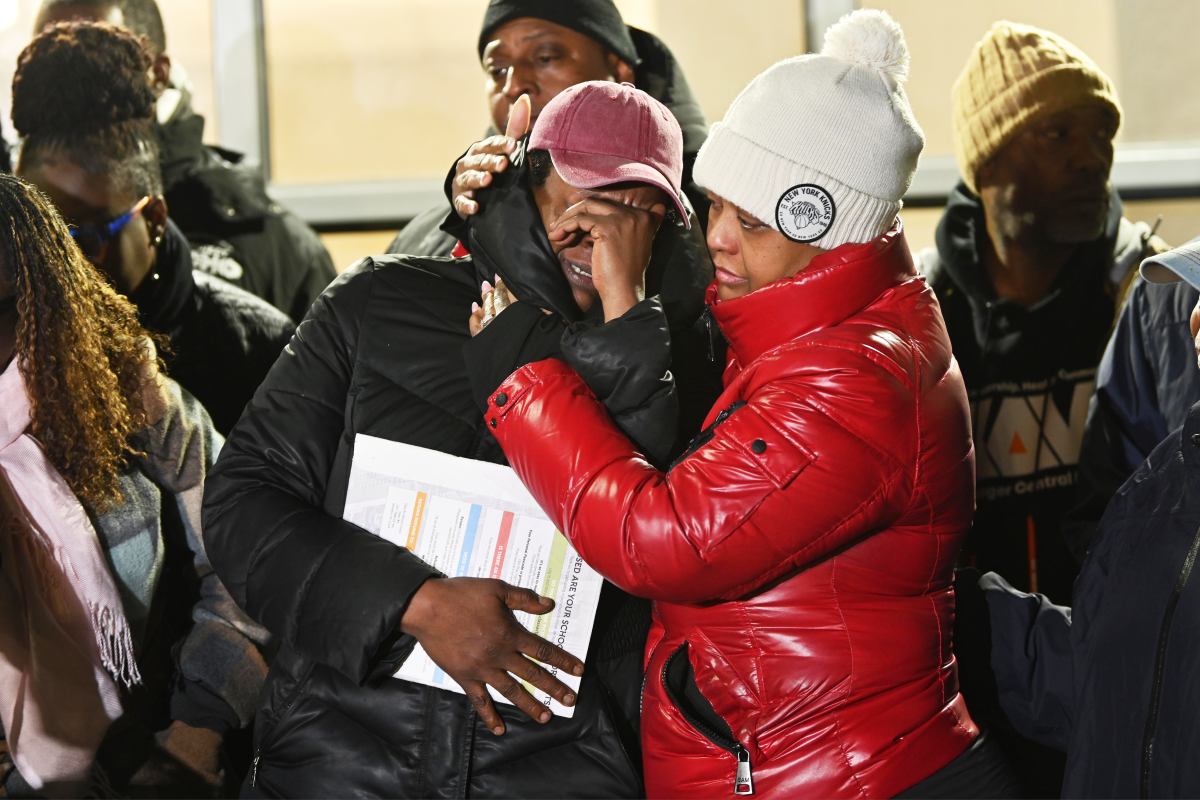
‘Bat Out of Hell’ runs through Sept. 8 at New York City Center. 131 W. 55th St., nycitycenter.org.
Bits and pieces of “Peter Pan” and “Romeo and Juliet” are mixed uneasily with hard rock hits and post-apocalyptic sci-fi in “Bat Out of Hell,” a bombastic, over-the-top jukebox musical that is just as bewildering as it is strangely entertaining.
With songs written by Jim Steinman — most of which were popularized by Meat Loaf on the “Bat Out of Hell” album trilogy — the musical premiered in 2017 in Manchester and went on to play London and Toronto. Although a U.S. tour was scrapped at the last minute, the show has made it to New York, where it is playing a multiweek run at City Center. This is a very unusual arrangement, given that City Center is technically neither Broadway nor Off-Broadway. Perhaps its producers are testing the waters and gauging the show’s appeal.
It is very similar in spirit to "We Will Rock You,” the Queen jukebox musical, which ran for years in London and will make its long-delayed New York premiere in November.
Set in the dystopian city of Obsidian (formerly Manhattan) in the year 2030, a band of rebels known as “The Lost” (whose DNA somehow got frozen, causing them to remain teens forever, and who live in abandoned subway tunnels) wage battle against the dictator-like Falco (Bradley Dean), who resides in a high tower with his forlorn wife, Sloane (Lena Hall), and 18-year-old daughter Raven (Christina Bennington). Raven takes a liking to Strat (Andrew Polec), the motorcycle-riding leader of “The Lost.”

The production (directed by Jay Scheib) is a flashy affair — and long, running just under three hours. The production is marked by gimmicky live filming of the actors (which is simultaneously projected onto the set), overaggressive backup dancing and cumbersome dialogue. Steinman (who is credited as the book writer) really ought to have brought on a playwright as a collaborator. I often wondered what to make of it all.
But when the cast launches into one of the many catchy rock anthems and emotional pop arias (including but not limited to “I’d Do Anything for Love,” “Paradise by the Dashboard Light” and the title song), the show suddenly takes on a propulsive energy.
The songs seem to jump out of the show — as if they are too epic and excessive to be integrated into its flimsy plot. They can also lead to some unintentionally ridiculous moments, like when Bennington gestures to various parts of her body as she sings, “But when you touch me like this and you hold me like that” in the familiar ballad “It’s All Coming Back to Me Now.”
The leads sing the hell out of the score — which is ultimately the most vital thing they can do. Dean (“The Book of Mormon”) makes for an appropriately broad and gruff villain, and Hall (a Tony winner for “Hedwig and the Angry Inch”) plays up her character’s weirdness.
Polec could probably tone down many of his wide-eyed, spooked-out facial expressions, and Bennington may want to rethink her playbill bio, which notes that she is “known for blowing audiences away with her outstanding performance as the lead female” in this very show. The audience can determine the quality of her performance on its own.


































